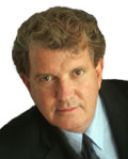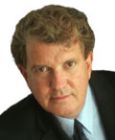Trust
Anxiety: Who Can You Trust?
We are faced with a decline of trust in all institutions.
Posted April 19, 2010
Anxiety and worry are often the result of the belief that important things in life are uncertain and uncontrollable. We are more likely to worry if we think that the outcome of the surgery is uncertain--- and we may seek reassurance from the doctor or others that it will work out. Or we may simply avoid the operation. We are more likely to invest our 401k dollars if we feel fairly sure that the market will go up (or, if we are shorting, if the market is going down). Uncertainty, predictability and control are key elements for the anxious mind. But do we trust the doctor, do we trust the market, and do we trust the information that we get from television that seems bent on dichotomizing reality?

Oh, and what about Bernie Madoff? Is he the only one with a Ponzi scheme? Or can we include the many financial "instruments" that have been sold for the last decade in an ever more complex game of financial foolery?
Trust also falters in family life. Over the last fifty years more and more kids are raised in homes without both biological parents. It's hard to trust in lasting friendships when you are moving every two years. And Facebook and Twitter are not likely to engender the strong bonding and deep friendships that people of the past enjoyed. Your face, your comments, your 250 "friends" are ephemeral, shallow, not reliable. After all, are you going to twitter your deepest, darkest secrets so that everyone and his grandmother can see it immediately on a blackberry?

The world of work does not give you the sense of trust, when we watch Donald Trump on the Apprentice. It's more like "fascism-lite" with the hirsute head of Trump belaboring the merits and demerits of the sorry and empty personalities surrounding his narcissistic ego. I should say, "superego", but that would give him too much credit.
And who would trust in a relationship when reality TV depicts finding a partner as an auction of unwanted bodies striving for a brief moment of attention? The message is not one of trust, nurturance, or caring. It's more like, "What can you do for me in the next ten minutes?" Bodies are acquired like commodities in a fire-sale, with no sense of commitment beyond a few days or weeks of need-gratification. The family has been in decline for the past 40 years, with many paramours asking for pre-nuptial dating contracts--- "Who gets the dog if we stop seeing each other?"
Trust in intimacy, friendships, the economy, the products bought and sold, the government, religion, and even the weather---all has declined. With less certainty in the world outside, is it no wonder that so many fall back on trusting only their appetites, their greed, and their own need for immediate gratification?
Trust and anxiety. Two sides of a sad picture.


